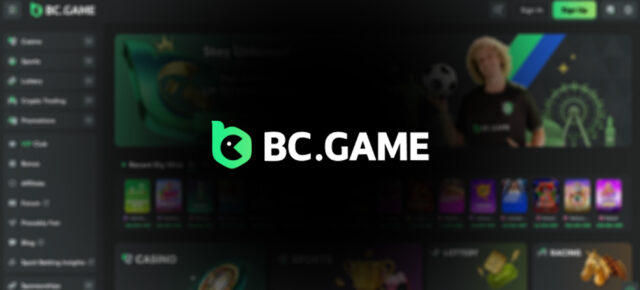Blockchain games are revolutionizing the gaming industry by integrating innovative technology with interactive entertainment. These games use blockchain to offer unique experiences, transparency, and new opportunities for players. Here’s a detailed look at the top reasons why blockchain games are becoming increasingly popular.
1. True Ownership of In-Game Assets
Decentralized Ownership
One of the most compelling reasons players are drawn to blockchain games is the concept of true ownership. In traditional games, in-game assets are typically controlled by the game developers, and players do not have real ownership of these items. Blockchain technology changes this by allowing players to own their in-game assets as non-fungible tokens (NFTs).
Secure and Verifiable
Blockchain provides a decentralized ledger where each asset’s ownership and transaction history are securely recorded. This means that players can buy, sell, and trade their assets in a transparent and verifiable manner, ensuring that their ownership is protected against fraud or loss.
2. Play-to-Earn Model
Earning While Playing
Blockchain games often feature a play-to-earn model, where players can earn cryptocurrency or other valuable tokens through gameplay. This model allows players to generate real-world value simply by participating in the game.
Incentivized Gameplay
Players are motivated to engage more deeply with the game as their efforts can lead to financial rewards. This incentivizes continued play and participation, enhancing overall player engagement and satisfaction.
3. Transparency and Fairness
Provably Fair Mechanisms
Blockchain technology enables provably fair gaming. This means that game outcomes are transparent and can be independently verified by players. For example, random number generators (RNGs) used in blockchain games can be audited to ensure that results are not manipulated.
Open Development
Many blockchain games are developed as open-source projects, allowing the community to contribute to the development and ensure that the game remains fair and transparent. This open approach fosters trust and credibility among players.
4. Decentralized Governance
Player Influence
Blockchain games often incorporate decentralized governance models, allowing players to have a say in the game’s development and decision-making processes. Players can vote on important issues, such as game updates, feature additions, and other significant changes.
Community-Driven Development
This model empowers players to influence the direction of the game, creating a more inclusive and community-driven development process. It also fosters a sense of ownership and belonging among players.
5. Enhanced Security
Immutable Records
Blockchain’s inherent security features provide robust protection against hacks and fraud. Transactions and ownership records are stored on an immutable ledger, making it extremely difficult for malicious actors to alter or tamper with the data.
Digital Wallet Integration
Players can store their in-game assets in digital wallets, which provide an additional layer of security. Wallets are protected by advanced encryption and authentication methods, ensuring that assets remain safe from unauthorized access.
6. Innovative Gameplay Mechanics
Unique Game Designs
Blockchain technology enables new and innovative gameplay mechanics that are not possible with traditional gaming platforms. Features such as decentralized marketplaces, cross-game asset compatibility, and programmable smart contracts offer fresh and exciting gameplay experiences.
Cross-Platform Interactions
Players can use their in-game assets across multiple games and platforms. For instance, an NFT acquired in one game may be used in another game, enhancing the versatility and utility of in-game items.
7. Community and Social Interaction
Building Communities
Blockchain games often foster strong communities through their decentralized nature and player-driven governance. These communities collaborate, trade, and engage in discussions, creating a vibrant social environment.
Social Proof and Networking
Players can showcase their achievements and assets within the community, gaining social proof and recognition. This networking aspect adds a social dimension to the gaming experience, enriching player interactions and relationships.
8. Reduced Dependence on Central Authorities
Autonomy and Control
Blockchain games operate on decentralized networks, reducing the reliance on central authorities and intermediaries. This autonomy gives players more control over their gaming experience and reduces the risk of interference or censorship from game developers or publishers.
Lower Transaction Costs
Decentralized transactions often come with lower fees compared to traditional financial systems
, allowing players to transfer and trade assets more cost-effectively. This can be especially beneficial in microtransactions or frequent trading scenarios.
9. Cross-Border Accessibility
Global Reach
Blockchain games are accessible to players worldwide, transcending geographical barriers. Players from different countries can interact, trade, and compete with each other seamlessly, fostering a global gaming community.
Financial Inclusivity
By supporting cryptocurrencies, blockchain games provide opportunities for players who may not have access to traditional banking systems. This financial inclusivity allows a broader range of individuals to participate in the gaming economy.
10. Continuous Evolution and Innovation
Cutting-Edge Technology
Blockchain technology is continuously evolving, bringing new advancements and features to the gaming industry. As technology progresses, blockchain games can integrate the latest innovations, offering players a constantly evolving and dynamic gaming experience.
Adaptability and Flexibility
The flexibility of blockchain technology allows developers to experiment with new concepts and gameplay mechanics. This adaptability ensures that games remain fresh and engaging, catering to the evolving preferences of players.
Conclusion
Blockchain games are transforming the gaming landscape by offering unique benefits such as true ownership of assets, play-to-earn opportunities, and enhanced transparency. With features like decentralized governance, innovative gameplay mechanics, and global accessibility, blockchain games provide a compelling and modern gaming experience. As the technology continues to advance, it is likely that these games will become even more integral to the future of interactive entertainment.























